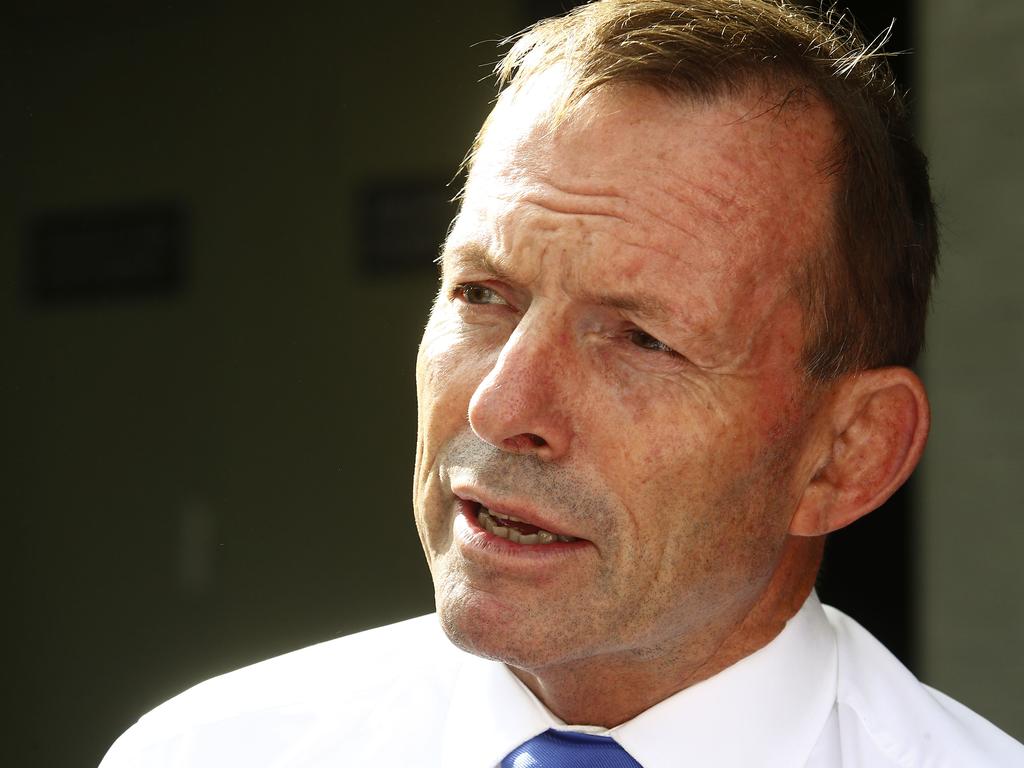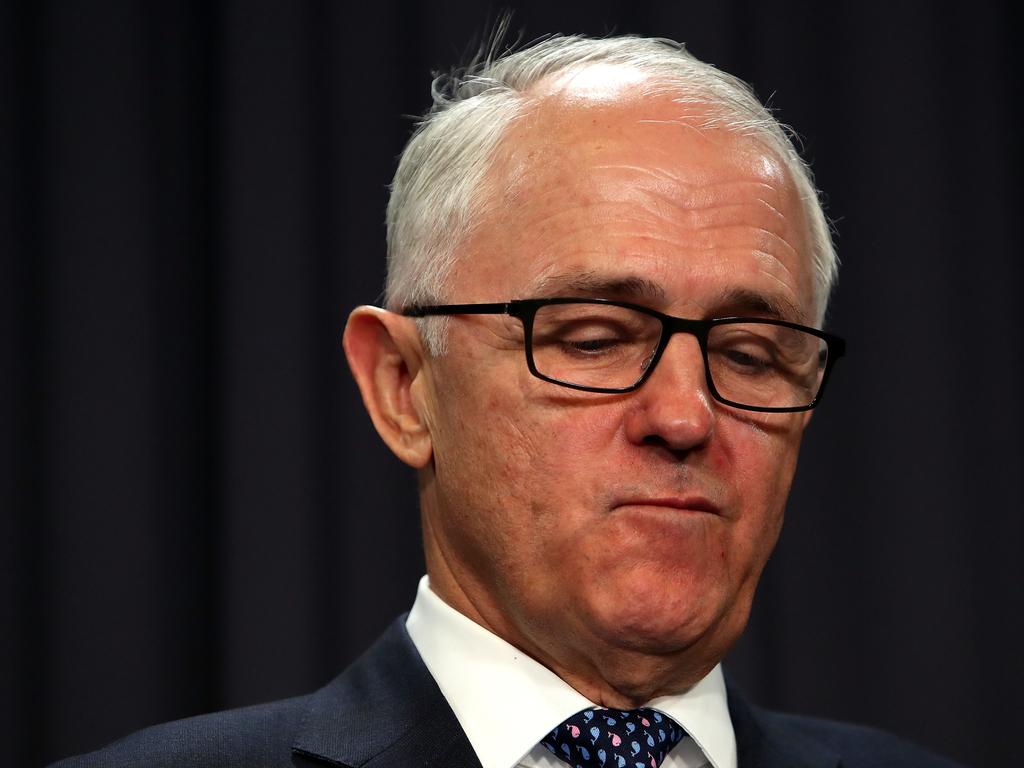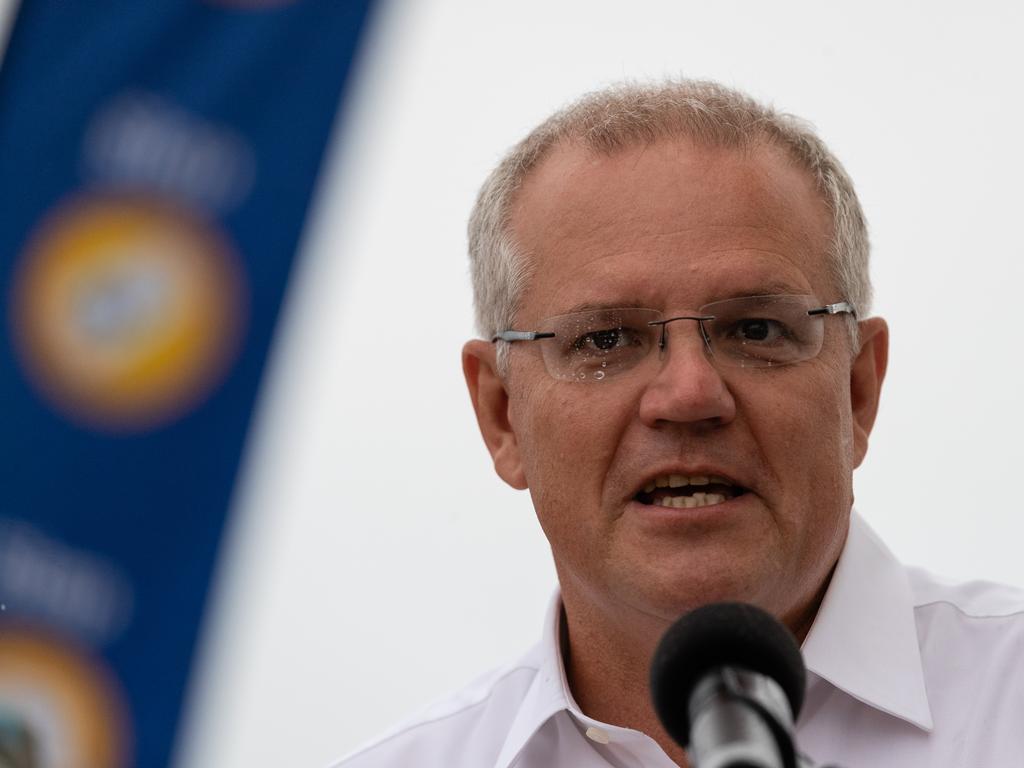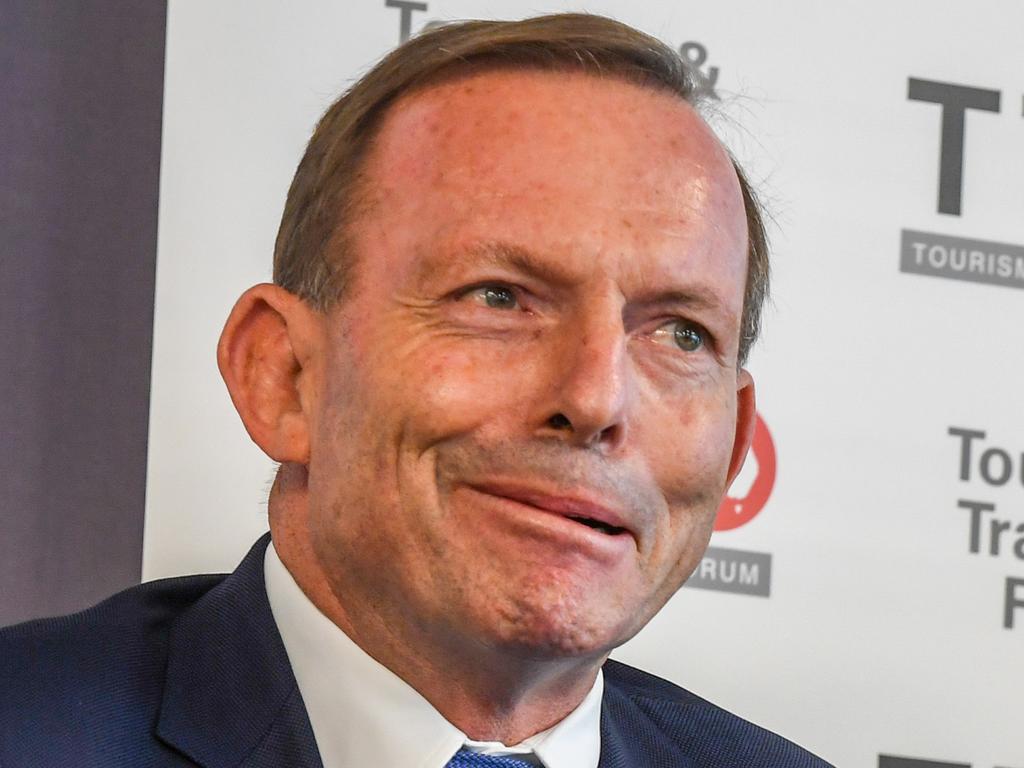Tony Abbott backflips on Paris climate agreement stance
Tony Abbott has made an abrupt and epic turnaround on an agreement that has left his colleagues shaking their heads.
Tony Abbott has made an epic turnaround on a climate change agreement that has left his colleagues shaking their heads.
Mr Abbott has abruptly announced: We will always have Paris.
That’s a reference to the 2015 UN sponsored agreement by more than 100 nations to reduce carbon emissions to 26-28 per cent by 2030.
It was the emissions target he approved as Prime Minister but then fought bitterly against during the prime ministership of Malcolm Turnbull.
But suddenly it is acceptable again.
This will be interpreted only one way: The member for Warringah has made the latest Abbott-backtrack after chatting to locals and gathering they were a carbon molecule away from ditching him after 25 years.

It was a stark and telling example of how rupturing electoral support might alter your whole approach to climate change.
Mr Abbott is living up to his self-applied description as a climate change weathervane — he goes with the electoral breezes.
Although, Mr Abbott would disagree. On Friday he attempted to make the argument that other factors had changed and that he alone had been consistent. Some will struggle with the case he makes.
“I think the Government has lost its emissions obsession now that Angus Taylor is the energy minister. So I don’t think (opposition to the Paris target) is now necessary but I certainly think it’s important we get more baseload power into the system as quickly as possible,” he said on Sky News.
“I’m not calling for us to pull out [of Paris] … We’ve got a new Prime Minister and a new energy minister.

“We had an emissions obsession that needed to be broken, and it has now changed.”
Some might translate this as: “Malcolm Turnbull isn’t Prime Minister any more.”
The Abbott army spear carriers were so quick in following the leader there must be some serious bouts of political whiplash.
This was Liberal back bencher Craig Kelly back in August when the party factional drums were beating about Turnbull’s leadership.
“I’m not the prime minister, but I think we should pull out of Paris,” Mr Kelly, who had to be rescued by Scott Morrison from Liberals in his seat of Hughes who didn’t want him as candidate, told 2GB.
“I think it’s damaging to the economy and I think it achieves nothing. There’s no environmental advantage of it.”

But on Friday, Mr Kelly — who once with careful use of redundancy condemned “moronic climate stupidity” — suddenly found cause for a truce on emissions. And with admirable frankness, he said he was changing his mind because an election was approaching.
Whatever principle had been involved in his original anti-Paris position apparently had been relegated.
“I support the policies that the Liberal Party has taken to this election,” he told reporters.
“I have an obligation as a member of the Liberal Party to get behind and support the policies we are taking to this election.”
The persistent bickering over the Paris targets was damaging to the Government, and not just because it might be seen as a reactionary attack on the task of lowering carbon emissions.
Prime Minister Morrison and Energy Minister Taylor still insist — contentiously — the 26-38 per cent emission reduction targets for 2030 will be me “in a canter” on existing settings, so what’s the problem?
Further, the Government wants to concentrate on sounding the alarm over Labor’s propose 50 per cent reduction and the harm it says this would cause industry.
The internal Paris brawl would distract from that political debate and weaken Government authority on the issue.

There also is the broader matter of internal instability and complaints from business and industry there is little energy policy certainty.
But what emerges is the sense the dust-up over the Paris D mission targets was more about leadership than policy.
Malcolm Turnbull noted this in a tweet today quoting a 1919 poem by WB Yeats, The Second Coming.
He certainly was not referring to himself returning but perhaps saw something of Liberal Party internal warfare in the poem’s final lines: “The best lack all conviction, while the worst are full of passionate intensity.”
Reflecting on some of today’s news I am reminded not for the first time of WB Yeats.
— Malcolm Turnbull (@TurnbullMalcolm) March 8, 2019
Turning and turning in the widening gyre
The falcon cannot hear the falconer;
Things fall apart; the centre cannot hold;
1/2
Mere anarchy is loosed upon the world,
— Malcolm Turnbull (@TurnbullMalcolm) March 8, 2019
The blood-dimmed tide is loosed, and everywhere
The ceremony of innocence is drowned;
The best lack all conviction, while the worst
Are full of passionate intensity. 2/2
WB Yeats “The Second Coming†1919
— Malcolm Farr is news.com.au’s national political editor. Continue the conversation @farrm51




